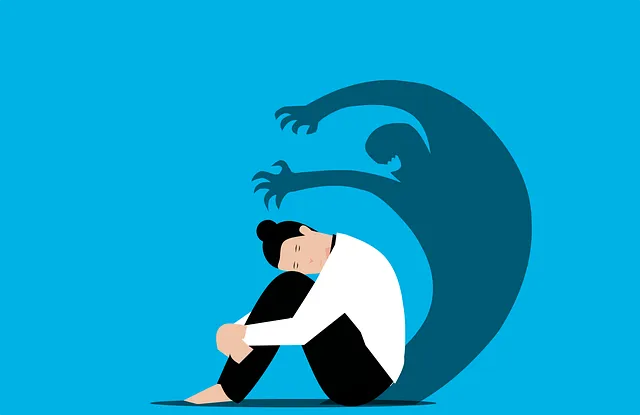Kaiser Permanente's mental health centers in Littleton offer a unique group facilitation approach, enhancing traditional therapy with collaborative activities and exercises. Trained facilitators guide participants through emotional discussions, building resilience, challenging negative thought patterns, and fostering social support networks. This innovative practice, evident from positive Kaiser Permanente mental health center reviews Littleton, benefits both patients and healthcare providers by promoting mental wellness, conflict resolution, and empathy. Facilitators create a safe space through active listening and mindfulness meditation, encouraging personal growth and emotional well-being, as indicated in the reviews. Reviews also help tailor programs to specific needs, ensuring individuals feel supported on their path to improved mental health.
Mental wellness group facilitation plays a pivotal role in enhancing care at facilities like Kaiser Permanente Littleton, as evidenced by positive Kaiser Permanente mental health center reviews. This article explores the art of group facilitation in mental health care, highlighting key techniques used to foster supportive environments. We delve into the responsibilities of facilitators, effective strategies for engaging participants, and methods to measure the profound impact and benefits these groups provide.
- Understanding Group Facilitation in Mental Health Care
- The Role of a Facilitator at Kaiser Permanente Littleton
- Effective Techniques for Facilitating Supportive Group Environments
- Measuring Success: Reviewing the Impact and Benefits
Understanding Group Facilitation in Mental Health Care

Group facilitation plays a pivotal role in mental health care, offering a collaborative and supportive environment that enhances traditional therapy methods. At Kaiser Permanente mental health centers like those in Littleton, facilitators skillfully guide groups through discussions, activities, and exercises designed to foster connection, build resilience, and promote healing. This approach not only benefits individuals struggling with mental health challenges but also contributes to the overall Mental Health Awareness and Burnout Prevention Strategies for Healthcare Providers.
Effective group facilitation techniques create a safe space where participants can share experiences, gain insights from peers, and develop coping strategies collectively. By fostering a sense of community, these sessions encourage open communication, challenge negative thought patterns, and enhance social support networks. Incorporating such practices at Kaiser Permanente mental health centers reflects a commitment to innovative care delivery, catering to the unique needs of individuals seeking holistic healing in a group setting.
The Role of a Facilitator at Kaiser Permanente Littleton

At Kaiser Permanente Littleton, the role of a facilitator goes beyond simply moderating group discussions. They act as guides, helping participants navigate complex emotional landscapes and fostering an environment that encourages open dialogue and mental wellness. Facilitators at this mental health center are trained in various techniques like conflict resolution, ensuring every voice is heard without judgment. This supportive atmosphere not only facilitates healing but also empowers individuals to develop effective coping strategies through the Kaiser Permanente mental health center reviews Littleton highlights as a key aspect of their service.
Through the implementation of Mental Wellness Coaching Programs and Development initiatives, facilitators play a pivotal role in enhancing group dynamics. They employ conflict resolution techniques to manage differing opinions, fostering understanding and empathy among members. This approach aligns with the broader mission of Kaiser Permanente to promote mental wellness, making sessions dynamic and impactful. Such facilitative methods are integral to the success of group therapy sessions, creating a safe space for personal growth and transformation.
Effective Techniques for Facilitating Supportive Group Environments

Creating a supportive group environment is key to effective mental wellness facilitation at centers like the Kaiser Permanente mental health center in Littleton. Facilitators play a crucial role in fostering an atmosphere where members feel safe, valued, and empowered to share their experiences. One proven technique is employing active listening skills, ensuring every participant’s voice is heard without judgment. This not only encourages open dialogue but also promotes emotional well-being promotion techniques that can be as simple as validating emotions or reflecting back shared sentiments.
Additionally, incorporating practices like mindfulness meditation into group sessions can significantly enhance inner strength development. These moments of calm and focus allow individuals to connect with their thoughts and feelings in a non-threatening way, helping them build resilience and cope more effectively with challenges. By combining these techniques, facilitators can create an inclusive space that encourages personal growth, strengthens bonds among members, and ultimately contributes to the overall mental wellness of the group.
Measuring Success: Reviewing the Impact and Benefits

Measuring success is a vital component of group facilitation, especially when addressing mental wellness at a center like the Kaiser Permanente mental health center in Littleton. Reviewing the impact and benefits of the sessions can provide valuable insights into the effectiveness of the techniques employed. This process involves collecting feedback from participants through anonymous surveys or one-on-one discussions, which can highlight improvements in emotional intelligence, a key factor in depression prevention and crisis intervention guidance.
By analyzing these reviews, facilitators can identify areas that resonate well with the group and those that may need adjustment. The feedback loop ensures that the mental wellness programs are tailored to meet the specific needs of the participants, fostering an environment where everyone feels heard, understood, and supported in their journey towards improved mental health.
Group facilitation plays a pivotal role in enhancing mental wellness at Kaiser Permanente mental health centers, such as the one in Littleton. By employing effective techniques, facilitators create supportive environments that foster connection and healing among peers. As reviewed through impact assessments, these group sessions have been shown to significantly improve participants’ mental health outcomes, making it an invaluable resource within the Kaiser Permanente Littleton community.






